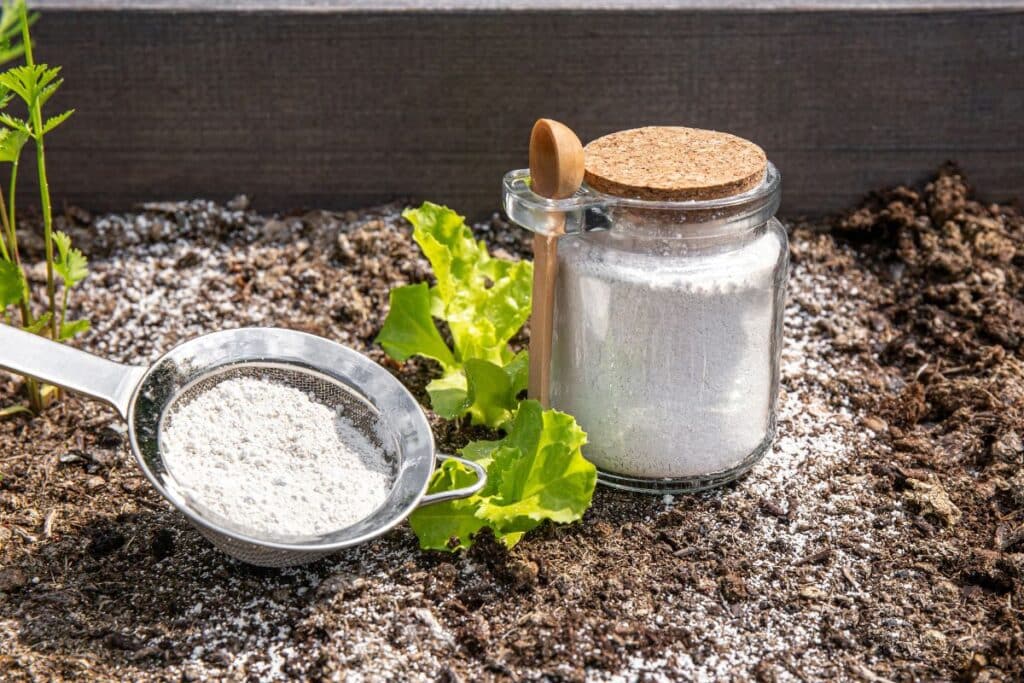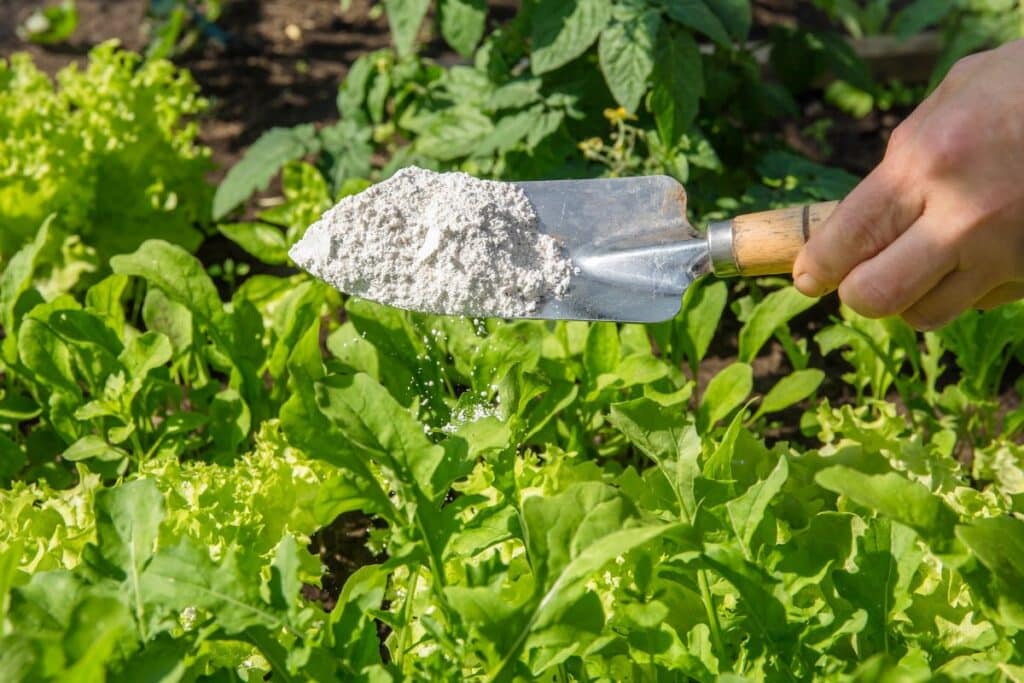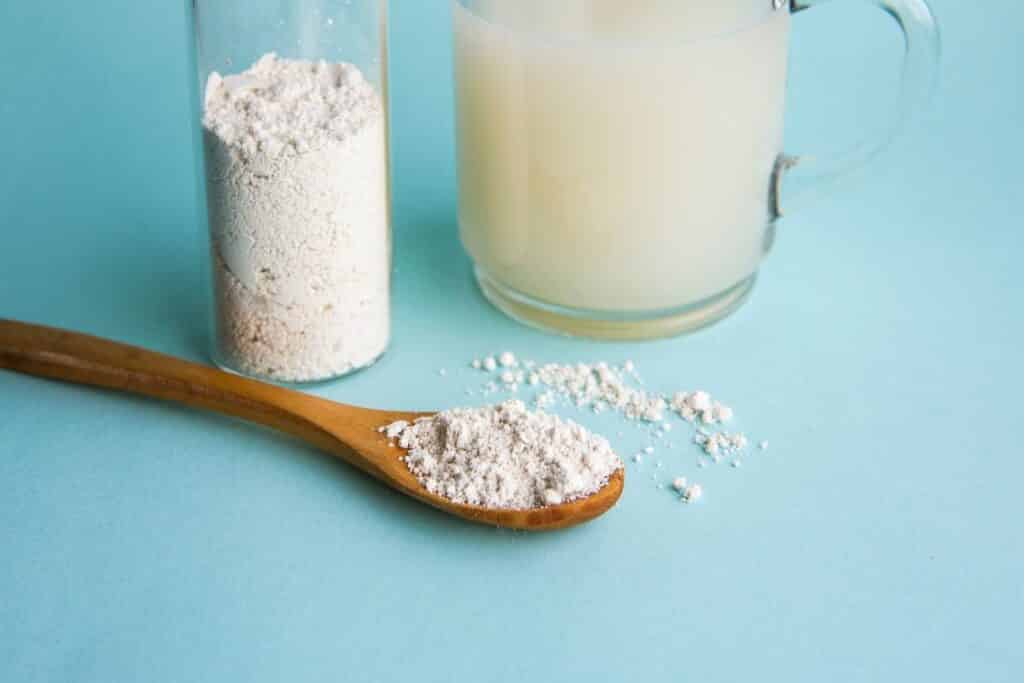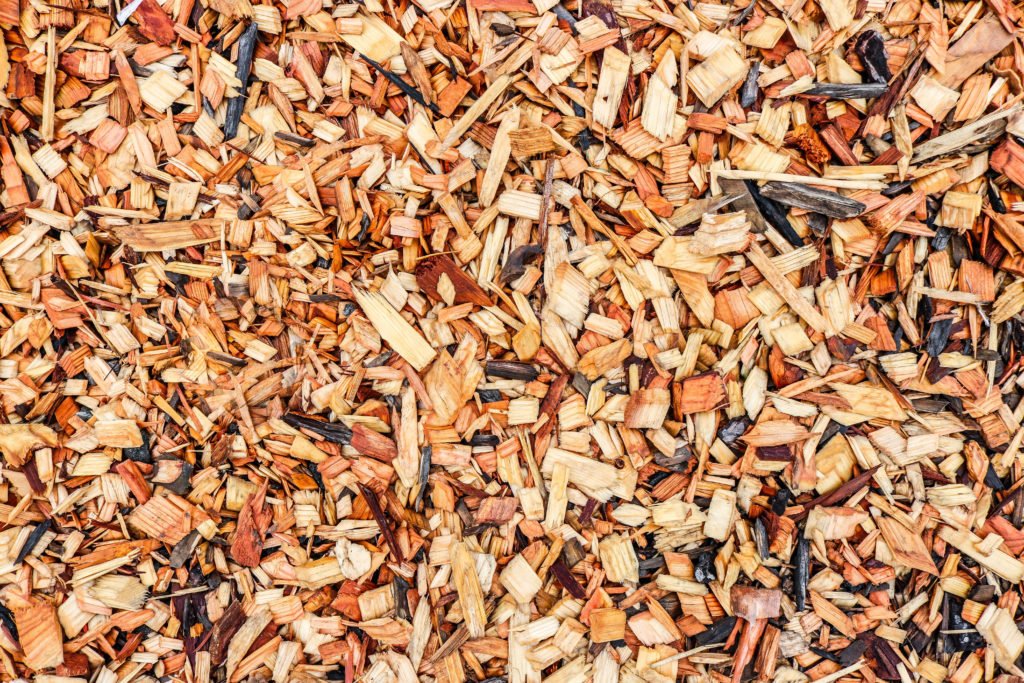Have you ever heard of diatomaceous earth? It’s a naturally occurring material that has some amazing benefits and uses. If you looking for a safe and all-natural way to get rid of pests in your home and garden, read on to learn more about this fantastic substance!
The term “diatomaceous earth” can refer to either the whole rock or the powdered form. It is non-toxic, non-corrosive, and does not break down over time. As a result, it is an ideal material for use in a wide range of applications. In this post, we’ll take a closer look at the many benefits of diatomaceous earth and how to use it safely in your home.
What is Diatomaceous Earth (DE)?
Diatomaceous earth (DE) is a naturally occurring substance made up of the fossilized remains of tiny aquatic organisms called diatoms.
The plants and animals that diatomaceous earth is made of are very small, with most being just 2-6 microns in size. This makes them invisible to the naked eye, but they are actually quite abundant in nature. These creatures lived in freshwater lakes and ponds, and their skeletons are made of a substance called silica.
What is Diatomaceous Used For?
Diatomaceous earth is a natural sedimentary rock that’s crumbly and soft. It’s also called DE, dinoseb, or fossil shell flour. Diatomaceous earth is a natural product that has a wide variety of uses. It is used in filters, insulation, abrasives, and as a packing material.
As an abrasive
The powdered form of diatomaceous earth is often used as an abrasive in cleaning products, as it is effective at scrubbing away dirt and grime. It can also be used as an abrasive in toothpaste, face scrub, and other beauty products.
For it’s absorbency
Crystalline silica is a powerful absorbent, and diatomaceous earth can absorb up to four times its own weight in liquid. This makes it an ideal material for use in things like kitty litter, oil spill cleanup, and pet bedding.
As a filter
Diatomaceous earth is often used as a filter material, as it has a high surface area and can trap small particles. DE filters are commonly used to remove impurities from drinking water and swimming pools.

As a pesticide
And because it is so absorbent, it can also be used as a natural insecticide. When fine powder diatomaceous earth comes into contact with an insect, it cuts through the bug’s waxy protective coating and dries it out. The bug then dies from dehydration.
For its health benefits
Diatomaceous earth is also added to some foods as a source of dietary fiber, and it is sometimes used as a supplement to promote gut health. Some people also believe that DE can help with weight loss, although there is no scientific evidence to support this claim.
What bugs does diatomaceous earth keep away?
Diatomaceous Earth works on any insect that has an exoskeleton including bed bugs, fleas, crickets, some grubs, mites, pill bugs, lice, sow bugs, ants, cockroaches, millipedes, earwigs, silverfish, most beetles, centipedes and fungus gnat larvae.
Where can I buy diatomaceous earth?
You can find diatomaceous earth products online or at some hardware stores. Most local garden nurseries will also sell it.
How to Use Diatomaceous Earth in the Garden
Diatomaceous earth is a fantastic addition to any garden. In addition to being a gentle insecticide, diatomaceous earth can also help to improve drainage and aeration in heavy soils. It can also be used as a mulch to help retain moisture and prevent weed growth.

Best of all, diatomaceous earth is completely safe for humans and pets, making it an ideal choice for those looking for an eco-friendly gardening solution.
To use diatomaceous earth in the garden, simply sprinkle it around the base of plants or mix it into the soil before planting. You can also spray your plants with water first, then apply the DE. This will help the DE to adhere to the plants and under the leaves. For best results, reapply every few weeks as needed.
When using diatomaceous earth for gardens, be sure to wear gloves and a dust mask to avoid inhaling the fine particles.
Does diatomaceous earth kill beneficial insects?
Many gardeners worry that diatomaceous earth may also kill beneficial insects. So does diatomaceous earth kill bees and ladybugs? Yes, it’s true that diatomaceous earth can kill most insects that come into contact with it, so you should be careful about where you choose to apply and use DE.

You can minimize the risk of harming beneficial insects by following a couple simple rules:
- Avoid using DE on flowers and plants that beneficial insects are attracted to
- You can also avoid contact with most beneficial insects like butterflies and bees by applying diatomaceous earth to the soil and around the base of plants.
- Do not sprinkle diatomaceous earth on flowers or leaves.
Is diatomaceous earth safe for humans and pets?
Food grade diatomaceous earth is considered to be non-toxic to humans and animals. In fact, it’s often used in food-grade products such as flour and sugar. However, it is important to avoid inhaling the powder, as this can irritate the lungs. If you do get DE on your skin, be sure to wash it off with soap and water as it can be irritating.
Risks and Side Effects
While diatomaceous earth is generally considered safe, there are some potential risks and side effects to be aware of. When inhaled, diatomaceous earth powder can irritate the lungs and cause respiratory problems. Some people may also experience skin irritation after handling diatomaceous earth.
What is the difference between DE and food grade DE?
Diatomaceous earth is available in two grades: food grade and industrial grade. Food grade DE is safe for human and animal consumption, while industrial grade DE should only be used for gardening and other non-consumptive purposes.
Can you consume diatomaceous earth?
Yes, you can consume food grade diatomaceous earth. In fact, it’s often used as a dietary supplement. Taking diatomaceous earth orally can help to detox the body and improve gut health. DE can also be used topically to treat skin conditions such as acne and eczema.

As always, consult your doctor before using any new products if you have any medical concerns. Our website is not intended to be a substitute for professional medical advice, diagnosis, or treatment.
Which diatomaceous earth is best for human consumption?
There are many brands of food grade diatomaceous earth available on the market. When choosing a DE supplement, be sure to select a product that is labeled “food grade” and sourced from a reputable company.
Is diatomaceous earth good for your gut?
Diatomaceous earth can be beneficial for gut health, as it can help to remove toxins and improve digestion. DE can also help to increase the good bacteria in the gut, which is important for overall health.
Be aware that DE can be disruptive to the digestive system if taken in large quantities, so it’s important to start with a small dose and increase gradually. Be sure to drink plenty of water when taking DE, as it can be disruptive to the digestive system if taken in large quantities.
Overall, diatomaceous earth is safe for most people when used in moderation, but it’s always best to talk to your doctor before starting any new supplement.



